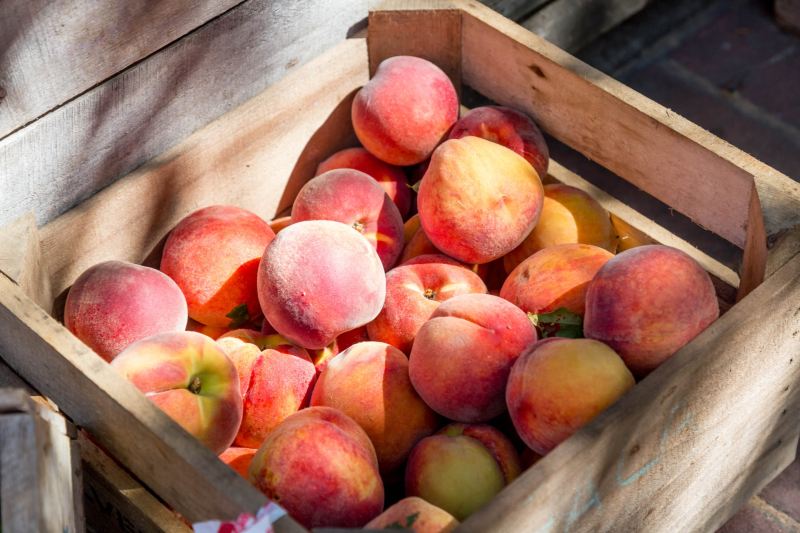
For most people, peaches and summertime go hand in hand. Whether it be in the form of a fresh peach pie topped with homemade whipped cream, or just the bare naked goodness of the fuzzy fruit’s sweet juices running down your arms, peaches are a summer staple. Sadly, however, this year, that won’t be the case.
Georgia, the state in which these gorgeously sweet little cuties flourish, has suffered a record-breaking loss of peach crops due to strange weather patterns earlier this year. Dario Chavez, an associate professor of Horticulture at the University of Georgia, told CNN the Peach State has lost more than 90% of its crop after a fluke February heat wave that was followed by two late-spring frosts. These unprecedented blows came together to destroy even the peach varieties that are specially bred to survive ever-changing weather conditions. And the fallout from this devastating loss has been immense.
Naturally, the lack of crops has wildly inflated the price of the state’s signature fruit. Wholesale buyers have reported that the price of boxes has climbed from the usual $17 – $20 per box to around $60. This time of year, the demand for fresh Georgia peaches is high, but the supply is at an all-time low, and it’s taking a huge toll.

The dire situation has caused some Georgia bakers and restauranteurs to do the unthinkable — turn to California peaches. Though for some, this is just too blasphemous a solution. Henryk Kumar, the director of operations at Georgia ice cream shops Butter & Cream, told CNN, “Buying peaches from any other state is completely out of the question.” He predicted his shop will run out of their Peaches & Cream and Georgia Peach Sorbet flavors in just a matter of weeks.
And while ice cream loss is a tragedy, to be sure, the true devastation lies in the havoc this is wreaking on both Georgia’s economy and the families who rely on these crops for their livelihoods. The shortage has forced many farmers to lay off workers, including many migrant workers who are brought in through H2-A Visa programs every year. The New York Times reported that the lack of peach sales and the jobs lost could cost the state upwards of $200 million.
Lawton Pearson, a fifth-generation peach farmer in Georgia, told The Washington Post, “We’ve had some off crops, some bad years, but we hadn’t had anything quite like this since 1955. We just don’t have a peach crop.”
Despite the gargantuan loss this year, though, there is hope that next year things should be back to normal. Pam Knox, an agricultural climatologist at the University of Georgia, told the Washington Post that she doesn’t think Georgia peaches are going anywhere permanently. “I don’t think we’re going to lose peaches, at least not in the short term.”



